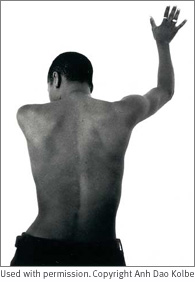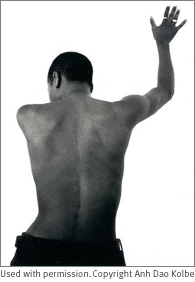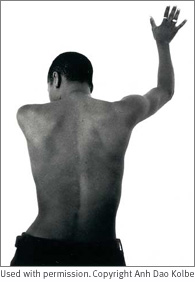Introduction
In today's world, even as awareness and tolerance increase, homosexuality continues to be viewed negatively and through stereotypes. Unfortunately, many of us are treated unfairly throughout society - in church, at school and even in our own homes. At various times homosexuality has been considered a crime, a sickness, a sin or at the very least an abnormality. Given these negative social, religious and familial attitudes it is likely that most gay and lesbian people face difficult and challenging experiences on a regular basis.

The teenage years are a confusing and challenging time in any person's life. For the self-identified gay or lesbian teenager adolescence can become a significantly troubling and isolating experience. Ostracised by their peers and rejected by adults, gay and lesbian teens develop disturbing thoughts and feelings about their place in this world. Some wonder if they belong here at all. As their feelings of sadness, confusion, isolation and anger remain ignored by others, they spiral downward into a troubling and painful sense of hopelessness and despair. Without the support and guidance of positive adults, role models, mentors or authority figures and with no place else to turn, suicide becomes the only remaining avenue of escape.
Unfortunately, parents, teachers, police officers, social workers and even health care professionals fail to consider or even acknowledge the struggles these youth live with on a daily basis. Their pain is often acted out through withdrawal, depression, drug and alcohol use, inappropriate or compulsive sexual acting out, truancy, petty crime and running away. Unsympathetically, these behaviours end up being further stigmatised by society, criminalised by law enforcement and pathologised by health care professionals. As their cries for help continue to fall upon deaf ears these youth are literally ignored to death.
Statistics on Teen Suicide
Suicide is the eighth leading cause of death in America and is skyrocketing amongst our youth. For young people ages 15-24, suicide is the third leading cause of death (National Center for Health Statistics, 1997). As staggering as these numbers may appear, it is widely believed that suicide amongst gay, lesbian and bisexual youth is even more profound. According to Gibson (1989) "gay and lesbian youth have a two to three fold risk of suicide" compared to heterosexual youth. In a recent study by Bagley (1994), 5 out of every 8 suicide attempters were gay or bisexual -- or put another way, gay and bisexual youth are 13.6 times more likely to have attempted suicide than their heterosexual counterparts.
Suicide amongst gay, lesbian and bisexual youth is a serious problem. As members of a hated, harassed and rejected group, these youth experience a sense of being different and isolated in the world, and they are at high risk for severe depression and suicide.

I met Miguel when he was seventeen years old and shortly after his third suicide attempt. His story is all too familiar amongst gay and lesbian youth that find themselves in a world of exclusion, heartless ridicule and vicious abuse.
"My life became upsetting for me at age nine which was the first time I was molested by my father's best friend. What happened was that I was playing in the back of the house when he walked in and started touching my body in a sexual way. Then he made me masturbate him. At the time I didn't know if what I was doing was wrong since I thought I was sort of attracted to him. But then he threw me face first on the ground and got on top of me. When he stuck it inside me, all I remember is that the pain was so much that I blacked out.
I was molested for the second time at thirteen. What happened was that I was walking through a field to get to the store when a man I didn't know pulled me under a tunnel. He fucked me for about an hour. I didn't tell my mom because I didn't want her to know and I figured she would blame me. I finally told my mom but she didn't believe me. She told my father and he beat me bad because they said I lied and shouldn't have been in the field. I was so angry and sad, I felt like running away. I wanted to kill myself but I didn't know how. I just didn't want to be around any longer because I thought it was my fault.
"One day I was in bed with my little brother and I was tempted to sexually act out but for some reason I didn't. My mom walked in and I think she felt that I was going to do something. She got so upset and beat me like never before. I really didn't care about being hit, and I ended up molesting my brother just to get back at my mom. Then the police showed up and I was taken away from my home and put in a group home.
"After a few days I just couldn't take it any longer. I was so scared and alone. I went into the bathroom with a large plastic bag and a leather belt I stole from my roommate. Nobody cared about me and nobody would listen. I felt so different from the others, like I was a mistake. I missed my family but I knew they didn't want me… I was a freak. I didn't want to be here. There was really only two choices, remain a mistake or leave this world."
Like Miguel many gay and lesbian youth have been abused emotionally, physically and/or sexually. Many of them feel responsible for the abuse because they have been taught by society that they are "bad" or "different" and thus deserve to be treated as so. Additionally, these youth are fearful of reporting such abuse as they risk exposing their "secret" to authorities, friends and family. Miguel was aware of his attraction to other males by this time but was confused about what it all meant. He realised that he could not share this "secret" with friends and especially his family for fear that he would be rejected and ridiculed. When he finally told his family what had happened, they blamed him for the rape.

Miguel was hurt and confused. Internally, he struggled with mixed thoughts and feelings and had no one to trust or confide in. Angered by his parents' lack of support and understanding, confused about his sexual identity, and with no other outlets to explore and express his sexual urges, Miguel finally acted out sexually with his younger brother. As a result, Miguel was beaten, further rejected by family, criminalised by the courts, taken away from his home, and left his younger brother as another victim of this sad but familiar story.
Such events would be difficult for anyone to endure, but for an adolescent naturally struggling with identity issues and having no place or no one to turn to for support, it all becomes too much. Miguel saw no reason to go on living.
We will look at the reasons why gay & lesbian teenagers turn to suicide, warning signs and what can be done to help them in the next and final instalment.
